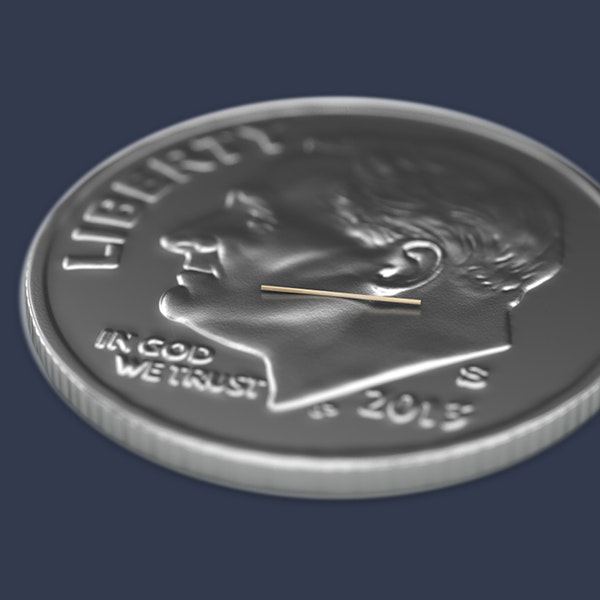The most common type of glaucoma is open-angle glaucoma, in which the outflow of fluid is compromised, but not entirely blocked. Open-angle glaucoma develops gradually, and doesn't usually present symptoms until irreversible damage has occurred due to a damaged optic nerve.
Glaucoma Treatment Huntsville, AL
Complete Glaucoma Care, From Drops to Surgery
Most glaucoma surgeries performed in North Alabama
Advanced laser and minimally invasive options
Personalized care plans starting with the least invasive approach
All services 100% covered by insurance
Glaucoma at
a Glance
Glaucoma is a group of eye diseases that damage the optic nerve, which carries visual messages to the brain. The damage is usually the result of high intraocular pressure (pressure within the eye) due to fluid building up in the front of the eye, between the iris and crystalline lens.
Whether you are in need of a routine exam, have been newly diagnosed with glaucoma, have lived with a glaucoma diagnosis for years, or are experiencing emergency angle closure glaucoma symptoms, we are here to help. We are headquartered in Huntsville and have four locations throughout the northern region of Alabama.
The less common and more urgent type of glaucoma is angle closure glaucoma. It occurs when the iris blocks the drainage canal, causing a rapid rise in eye pressure. Without emergency treatment, it can damage the optic nerve and cause blindness. Symptoms of angle-closure glaucoma include blurred vision, eye pain, headache, nausea, vomiting, and seeing rainbow-like halos around lights.
Glaucoma cannot be cured, but it can be controlled. This is why regular exams are so crucial. When glaucoma is detected in the earliest stages, it can be managed with treatment ranging from medication to surgery that can prevent damage to the optic nerve.
“Among the very best.” High Praise for Our Glaucoma Specialists
Dr. Salter and his staff are great! My 1st appointment with him was awesome. His staff and the surgery scheduler Ambera treated me like I was the only patient there. Dr. Salter answered all my concerns. I highly recommend this facility.
View on GoogleI have been a patient at Maynor & Mitchell for many years, and all the folks there have been the most professional and friendly I have ever experienced in any medical facility. They are all among the very best.
View on GoogleRegular Eye Exams Can Catch Glaucoma Early
Although glaucoma is most common among older adults and is the leading cause of blindness in people over 60, it can develop at any age. The American Academy of Ophthalmology recommends that if you have good vision, you should undergo at least one eye exam in your 20s and two exams in your 30s. At age 40, you should undergo a complete eye exam that will allow your ophthalmologist to determine how often you should have an exam.
If you are due for an eye exam or have experienced a change in your vision, reach out to our optometrist in Huntsville, AL, serving communities throughout Alabama. We can arrange to meet you as soon as possible to conduct a complete eye exam and detect any issues such as glaucoma in their very earliest stages, when they are easiest to treat and manage.
Laser Treatments to Lower Eye Pressure Without Surgery
-
Laser Trabeculoplasty
If eye drop medication has been unsuccessful or causing side effects, Dr. Salter may recommend selective laser trabeculoplasty. It may also be recommended as an initial treatment. It is typically recommended for patients who have primary or secondary open-angle glaucoma. A laser initiates a chemical and biological change in the tissues of the eye's drainage system, with IOP becoming lower within about three months.
-
Peripheral Iridotomy
Peripheral iridotomy can benefit patients with acute angle-closure glaucoma who have achieved control over intraocular pressure (IOP) and intraocular inflammation. A laser is used to create an opening in the iris, allowing aqueous humor to flow straight from the posterior to the anterior chamber to reduce intraocular pressure and prevent ocular nerve damage and vision loss. Our Huntsville-based practice can provide the advanced care you need to protect your vision.
Minimally Invasive Glaucoma Surgery With Faster Recovery

The Hydrus Microstent
The Hydrus® Microstent is a medical device implanted in conjunction with cataract surgery. It is about the size of an eyelash, and is designed for adults with mild to moderate primary open-angle glaucoma. This device lays across about 90 degrees of the iris, allowing aqueous humor (the fluid that fills the space between the crystalline lens and the iris) to flow properly through the drainage canal to the bloodstream. The Hydrus provides scaffolding and promotes flow to maintain normal eye pressure and prevent open-angle glaucoma from damaging the optic nerve and causing vision loss.

iStent inject W
iStent inject® W is indicated for placement in conjunction with cataract surgery to benefit patients with mild to moderate primary open-angle glaucoma. These are among the smallest medical devices implanted in the human body.

The XEN Gel Stent
The XEN® Gel Stent is designed specifically for patients who have not had success with a previous surgical treatment or medications alone. The small tube-like device becomes flexible when implanted in the eye, creating a small channel to aid the outflow of fluid and reduce intraocular pressure.
Surgical Solutions for Advanced or Complex Glaucoma
-
Trabeculectomy
Trabeculectomy involves creating a new drainage canal within the eye. Your eye doctor creates a flap in the white part of the eye (sclera) under your eyelid. The flap covers a newly created pathway, but can open to allow fluid to be absorbed into the blood vessels, helping to maintain normal intraocular pressure and prevent optic nerve damage and vision loss.
-
Tube Shunt Surgery
If you have had a trabeculectomy but it did not provide the desired results, tube shunt surgery may be recommended. It involves the placement of a bendable plastic tube attached to a drainage pouch to drain fluid from the eye and achieve normal eye pressure. If your eye doctor determines that you are likely to form scar tissue in the eye, a tube shunt may be recommended before trying a trabeculectomy. We will thoroughly assess your candidacy for this and other procedures during your appointment to prevent optic nerve damage.
"Dr. Salter is a great doctor." What Patients Say About Our Glaucoma Surgeon
Dr. Salter is a great doctor. He doesn't waste time; but he always has time to answer questions and reassure you. Melanie is very nice, patient, and courteous while getting you checked in before the doc comes in. Always have been called back with a minute or two of appt time and back in the car about 30 minutes later. Highly recommend.
View on GoogleExcellent care. My health concerns have been minimized through our engagements. Great team here and clean facility.
View on Google

